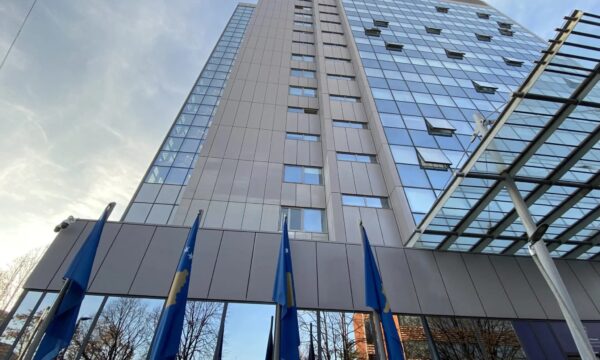Half of the constitutional deadline for forming a new government in Kosovo has passed, while political uncertainty continues to dominate the scene.
Acting Prime Minister Albin Kurti has publicly committed only to “initiating negotiations,” but has provided no concrete signals regarding a possible coalition or parliamentary majority.
Kurti’s party, Vetëvendosje (LVV), faces strong pressure to secure support in the Assembly, as the February 9 elections left it short of the majority needed to govern alone. Options remain limited: Vetëvendosje has ruled out talks with the Democratic Party of Kosovo (PDK), which finished second in the elections, while leaving the door open to potential cooperation with the Democratic League of Kosovo (LDK).
Despite repeated inquiries from Radio Free Europe, LVV spokesperson Arlind Manxhuka declined to comment on the progress of coalition talks. Some party deputies confirmed that they are unaware of any discussions with other parliamentary parties, adding that “it remains to be seen.”
Similarly, senior LDK officials, speaking on condition of anonymity, stated that no meetings or invitations have occurred to discuss a possible coalition. One official noted, “Vetëvendosje is acting through individuals, not through us as a political party,” adding that it is impossible to predict whether any concrete outcomes will emerge.
The statements follow reports that LDK’s mayoral candidate for Vushtrri, Xhafer Tahiri, signed a coalition agreement with Vetëvendosje for the second round of local elections on November 9, when PDK and LVV candidates will face off. The central LDK leadership condemned the agreement, describing it as “individual, unacceptable, and in violation of party statutes,” though the local Vushtrri branch argued that “the city needs change.”
Political analyst Artan Muhaxhiri views the agreement as a strategic move by Kurti to fragment the LDK and portray it as indecisive, potentially benefiting LVV in future elections. Muhaxhiri notes that achieving a coalition in each municipality requires significant coordination with the party center, and he sees new elections as more realistic than forming a government at this point.
The constitutional 15-day deadline for presenting a new government expires on October 26, after which President Vjosa Osmani has ten days to consult parties and, at her discretion, nominate another candidate capable of securing a parliamentary majority.
Osmani emphasized that there is still time to reach this goal, while criticizing the Serb List for creating obstacles. The Serb List recently filed a complaint with the Constitutional Court regarding the election of the Serbian deputy speaker, Nenad Rashiq, claiming violations of the Constitution and internal rules. Experts warn that, depending on the Court’s ruling, the process could reset, and the Assembly may not be considered fully constituted.
When asked about the complaint, Assembly Speaker Dimal Basha responded briefly: “They have the right to appeal.”







